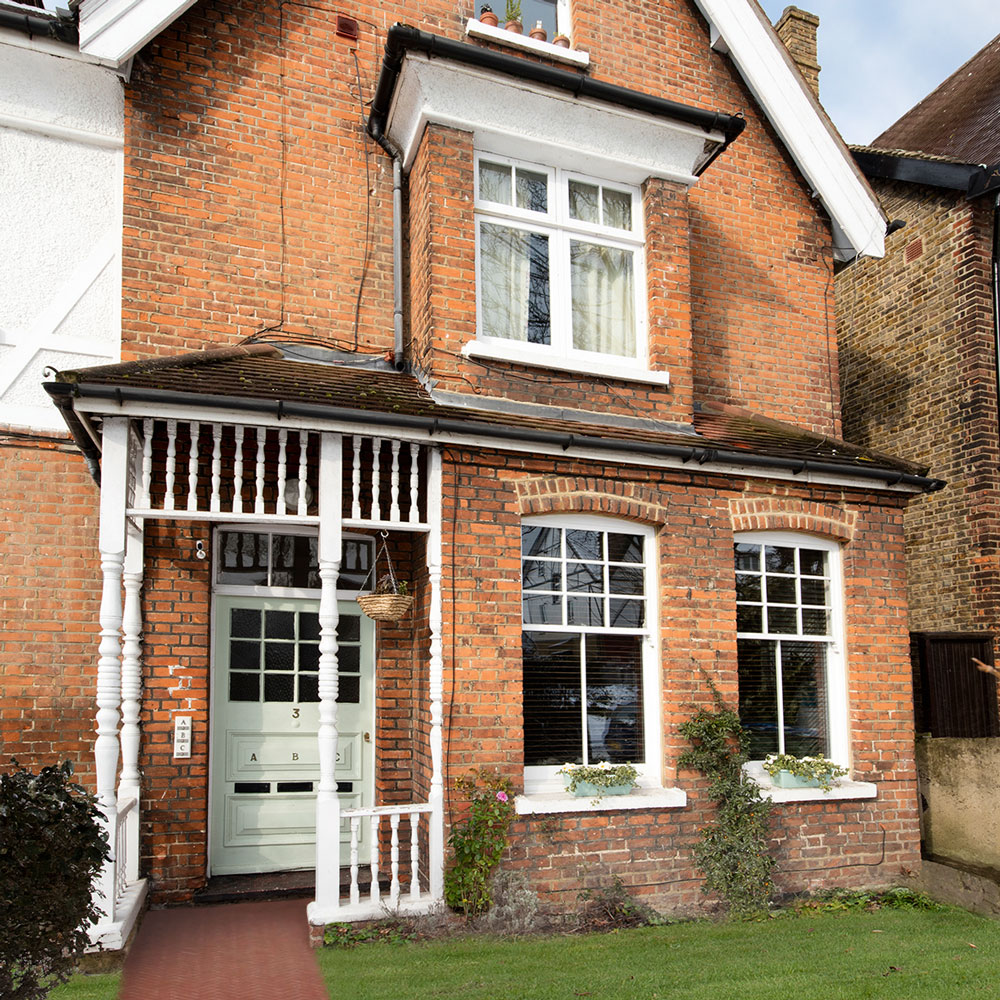How to apply for a mortgage – the step by step guide
If you’re buying your first home, here’s how to apply for a mortgage and some handy tips for getting prepared
Sign up to our newsletter for style inspiration, real homes, project and garden advice and shopping know-how
You are now subscribed
Your newsletter sign-up was successful
If you don’t know how to apply for a mortgage, it can seem like a daunting task. It is after all one of the biggest investments you're ever likely to make, without any experience – if it's your first time! But we're here to reassure you it needn’t be stressful. If you know what to expect and prepare ahead of time you’ll sail through the process with ease.
We outline the key steps in the process of how to apply for a mortgage, so you know what to expect.
How to apply for a mortgage – the step by step guide

1. Get mortgage ready
To improve your chances of getting the lowest mortgage rate and the highest loan amount, tidy up your bank statements and credit file ahead of your application.
‘A tip for new buyers is to make sure you’re registered on the electoral roll,’ says Rachel Dixon, mortgage adviser, RH Dixon. ‘Lenders want to see where you’ve lived and what credit you’ve had in the past before they make a decision’ You can register for the electoral roll online.
‘Late or missed payments will damage your credit score and affect the mortgage rate you’re offered,’ explains Rachel. ‘Pay your bills on time by setting up direct debits for your commitments.’
Manage a small amount of credit to show lenders you’re good with money.
To improve your credit score for a mortgage Try not to use your overdraft or exceed your pre-agreed limit leading up to your mortgage application. It looks like you’re living beyond your means.
Sign up to our newsletter for style inspiration, real homes, project and garden advice and shopping know-how
2. Work out your buying power
To find out how much you can borrow, fill out an online budget planner or ask a mortgage broker to do it for you.
You’ll be asked for your:
- Annual salary or average profit
- Monthly debts
- Cost of utilities, transport, food and socialising
- Other regular commitments
A budget planner gives you an estimate of your maximum loan. You can ask a lender for a more accurate mortgage offer by applying for an Agreement in Principle (AIP). You’ll be credit checked before you get an answer.
David Hollingworth of L&C Mortgages says: ‘An AIP demonstrates to the seller and estate agent that you’re a serious buyer and it can provide surety for those who have had credit issues in the past and are worried they may fail a lender’s credit score.’
The loan amount on the AIP is not guaranteed. Try our mortgage calculator to see how much you could borrow.
3. Gather your supporting documents
Now you know how much you can spend, it’s time to get house hunting. You can gather the documents you’ll need for your application at the same time.
You’ll need:
- Latest three months’ payslips
- P60
- Latest three months’ bank statements
- Identification, usually a passport or driving licence
- Evidence of savings for your deposit
- Latest two years’ accounts / SA302 forms and tax overviews if self-employed

4. Choose the right mortgage deal
Aaron Strutt of mortgage broker Trinity Financial says a key decision for borrowers is whether to choose a deal that offers security or flexibility.
‘If borrowers choose a fixed rate they know how much their mortgage payment will be for a set term,’ he explains. ‘But many do not consider the high penalties they face if they sell or remortgage before the fixed term ends.
‘Or you can choose a tracker mortgage that rises and falls in line with the Bank of England base rate. Although the interest rate fluctuates, there’s no penalty to exit early.’
5. Making a full application
Once the seller has accepted your offer it’s time to apply for your mortgage.
You’ll need to supply some extra details to your lender at this stage such as the purchase price and the address of the property. Specify how much you want to borrow, the value of your deposit and where it comes from, such as your own savings or a gift from parents.
You’ll also need to give your solicitor’s contact details, so if you haven’t already got one - it’s time to instruct a firm to act for you.
The lender will ask a surveyor to value the property to make sure it is worth what you are prepared to pay for it.
6. Accept your mortgage offer
Once the lender is satisfied with all information supplied, you’ll be issued a formal mortgage offer. This is valid for three to six months.
When the legal work is complete, your solicitor will ask the lender to send over your mortgage funds. Your mortgage along with your deposit is transferred to the seller’s solicitor before the property becomes legally yours.
Ways to apply for a mortgage
If you like managing your finances online, you can apply for your mortgage on the internet. Habito, Trussle, and Mojo Mortgages are the most well-known online brokers.
The face-to-face appointment is replaced with an online application form and you’ll be offered mortgage deals from all mortgage lenders based on a computer algorithm.
Or you can arrange a mortgage appointment with a traditional mortgage broker over the phone or in person. They can search the whole market for the best deal.
If you prefer to deal with your own bank, speak to the mortgage adviser in your local branch. They will only be able to recommend the bank’s own mortgage deals.
Samantha Partington is a personal finance journalist specialising in mortgages and the property market.
Over the past nine years, Samantha has worked for the Daily Mail, trade website Mortgage Solutions and business title Property Week. She regularly writes for national money pages including Money Mail and Sun Money and supports prop tech firms with content writing.